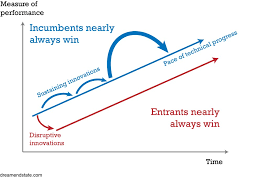The Best CRM Software for Small Businesses
Customer Relationship Management (CRM) software is essential for small businesses looking to streamline their operations and improve customer interactions. Here are some of the top CRM software options that cater specifically to the needs of small businesses:
Zoho CRM
Zoho CRM is a popular choice for small businesses due to its user-friendly interface and affordability. It offers a range of features including lead management, contact management, and sales automation tools.
Salesforce Essentials
Salesforce Essentials is designed for small businesses and offers powerful CRM capabilities in a simple package. It provides tools for managing customer information, tracking sales opportunities, and automating tasks.
HubSpot CRM
HubSpot CRM is a free option that provides small businesses with essential CRM features such as contact management, email tracking, and pipeline management. It also integrates seamlessly with other HubSpot tools.
Insightly
Insightly is a cloud-based CRM platform that caters to the needs of small businesses with features like project management, lead routing, and customisable dashboards. It offers scalability as your business grows.
Pipedrive
Pipedrive is known for its intuitive interface and focus on sales pipeline management. It helps small businesses track deals, automate repetitive tasks, and monitor performance metrics to drive sales growth.
Choosing the right CRM software can greatly benefit your small business by improving customer relationships, increasing efficiency, and driving revenue growth. Consider these top options when selecting a CRM solution that best suits your business needs.
Top CRM Software for Small Businesses: 7 Key Advantages for Growth and Efficiency
- User-friendly interface for easy adoption by small business teams.
- Affordable pricing plans that fit within small business budgets.
- Customisable features to adapt the CRM software to specific business needs.
- Automated task management saves time and improves productivity.
- Centralised customer data storage for easy access and efficient communication.
- Integration capabilities with other tools and platforms for seamless workflow.
- Scalability options to accommodate business growth without switching CRM systems.
Top CRM Software for Small Businesses: 7 Potential Drawbacks to Consider
- 1. Cost can be a limiting factor for small businesses, as some top CRM software options may have high subscription fees.
- 2. Complexity of features may overwhelm users who are not familiar with CRM systems, leading to a steep learning curve.
- 3. Integration issues with existing software and tools used by the business could arise, causing disruptions in workflow.
- 4. Customisation options in certain CRM software may be limited, making it challenging to tailor the system to specific business needs.
- 5. Data security concerns may arise due to storing sensitive customer information on third-party servers, posing potential risks.
- 6. Limited customer support or training resources provided by the CRM software provider could hinder effective implementation and usage.
- 7. Scalability limitations might become an issue as the business grows, requiring a transition to a more robust CRM solution.
User-friendly interface for easy adoption by small business teams.
One of the key advantages of top CRM software for small businesses is its user-friendly interface, which facilitates easy adoption by small business teams. With intuitive navigation and simple functionalities, employees can quickly learn how to use the CRM system effectively without extensive training. This user-friendly design not only saves time but also encourages widespread acceptance and engagement among team members, ultimately enhancing productivity and improving customer relationship management practices within the organisation.
Affordable pricing plans that fit within small business budgets.
Affordable pricing plans offered by top CRM software for small businesses are a significant advantage, as they cater to the budget constraints of smaller enterprises. These cost-effective options ensure that businesses can access essential CRM features without overspending, allowing them to maximise the benefits of customer relationship management tools while keeping expenses manageable. By choosing CRM software with affordable pricing plans, small businesses can enhance their operational efficiency and customer interactions without straining their financial resources.
Customisable features to adapt the CRM software to specific business needs.
One significant advantage of the top CRM software for small businesses is the ability to customise features to align with specific business requirements. This flexibility allows businesses to tailor the CRM software to their unique processes, workflows, and goals. By adapting the software to specific needs, small businesses can enhance efficiency, improve customer interactions, and ultimately drive growth. Customisable features empower businesses to create a CRM solution that precisely meets their demands, making it a valuable asset in achieving success in today’s competitive market.
Automated task management saves time and improves productivity.
Automated task management is a valuable feature of top CRM software for small businesses, offering significant benefits such as saving time and enhancing productivity. By automating routine tasks like data entry, follow-up reminders, and lead assignments, employees can focus on more strategic activities that drive business growth. This efficiency not only streamlines operations but also ensures that important tasks are completed promptly, leading to improved overall productivity within the organisation.
Centralised customer data storage for easy access and efficient communication.
Centralised customer data storage is a key advantage of top CRM software for small businesses. By storing all customer information in one place, businesses can easily access and manage data, leading to more efficient communication with customers. This centralised approach enables businesses to track interactions, preferences, and purchase history seamlessly, allowing for personalised and targeted communication that enhances the overall customer experience. With quick access to comprehensive customer data, small businesses can build stronger relationships and make informed decisions to drive growth and success.
Integration capabilities with other tools and platforms for seamless workflow.
The integration capabilities of top CRM software for small businesses play a crucial role in enhancing operational efficiency and promoting a seamless workflow. By seamlessly connecting with other tools and platforms, such as email marketing software, project management tools, and accounting systems, these CRM solutions enable businesses to streamline processes, consolidate data, and ensure consistent communication across different departments. This integration not only saves time and reduces manual effort but also provides a holistic view of customer interactions, leading to improved decision-making and enhanced customer relationships.
Scalability options to accommodate business growth without switching CRM systems.
Scalability is a key advantage of top CRM software for small businesses, as it offers the flexibility to accommodate business growth without the need to switch CRM systems. This means that as a small business expands and its customer base grows, the CRM software can easily scale up to meet the increased demands and requirements. By providing scalability options, businesses can seamlessly adapt their CRM system to support larger volumes of data, more complex processes, and additional users without disrupting existing operations or investing in a new solution. This not only saves time and resources but also ensures continuity in managing customer relationships effectively throughout the growth stages of the business.
1. Cost can be a limiting factor for small businesses, as some top CRM software options may have high subscription fees.
Cost can indeed be a significant drawback when it comes to implementing top CRM software for small businesses. Many of the leading CRM solutions in the market come with high subscription fees, which can pose a financial challenge for smaller companies with limited budgets. The cost factor may deter some businesses from accessing advanced features and functionalities that could otherwise help them streamline their operations and enhance customer relationships. Small businesses need to carefully consider their budget constraints and weigh the benefits against the expenses when choosing a CRM software solution that aligns with their financial capabilities.
2. Complexity of features may overwhelm users who are not familiar with CRM systems, leading to a steep learning curve.
The complexity of features in some top CRM software for small businesses can pose a significant challenge for users who are not well-versed in CRM systems. This can result in a steep learning curve that may overwhelm users, hindering their ability to fully utilise the software’s capabilities. The abundance of functions and settings may require extensive training and support to navigate effectively, potentially impacting productivity and adoption rates within the business. It is essential for small businesses to consider the user-friendliness and ease of use of CRM software to ensure successful implementation and maximise its benefits.
3. Integration issues with existing software and tools used by the business could arise, causing disruptions in workflow.
One significant drawback of using top CRM software for small businesses is the potential for integration issues with existing software and tools already in use by the business. These compatibility challenges can lead to disruptions in workflow, as data may not sync correctly between different systems, resulting in inefficiencies and errors. Addressing these integration issues can require additional time and resources, impacting the seamless operation of the business and potentially hindering productivity. It is essential for small businesses to carefully evaluate the compatibility of CRM software with their existing tools to minimise disruptions and ensure a smooth transition.
4. Customisation options in certain CRM software may be limited, making it challenging to tailor the system to specific business needs.
Customisation options in certain CRM software for small businesses may be limited, posing a significant challenge when trying to tailor the system to meet specific business requirements. This limitation can hinder the ability to adapt the CRM software to unique processes and workflows, potentially leading to inefficiencies and a lack of alignment with the company’s operations. Small businesses seeking highly customised solutions may find themselves constrained by the restricted customisation features of some CRM software options, limiting their ability to fully optimise the system for their individual needs.
5. Data security concerns may arise due to storing sensitive customer information on third-party servers, posing potential risks.
One significant drawback of using top CRM software for small businesses is the potential data security concerns that may arise. Storing sensitive customer information on third-party servers could pose a risk of data breaches or unauthorized access to confidential data. This raises questions about the safety and privacy of customer data, as businesses may have limited control over the security measures implemented by the CRM software provider. It is crucial for small businesses to carefully assess and address these data security risks to protect their customers’ information and maintain trust in their business operations.
6. Limited customer support or training resources provided by the CRM software provider could hinder effective implementation and usage.
Limited customer support or training resources provided by the CRM software provider could hinder effective implementation and usage for small businesses. Without adequate support and guidance, users may struggle to fully utilise the CRM software’s features, leading to inefficiencies and missed opportunities. It is crucial for CRM software providers to offer comprehensive training materials, responsive customer support channels, and ongoing assistance to ensure that small businesses can maximise the benefits of their CRM system and achieve successful outcomes in managing customer relationships.
7. Scalability limitations might become an issue as the business grows, requiring a transition to a more robust CRM solution.
As small businesses expand and evolve, scalability limitations of certain CRM software can pose challenges. The need to accommodate a growing customer base, increased data volume, and more complex business processes may outstrip the capabilities of the current CRM solution. This can necessitate a transition to a more robust CRM system that offers greater scalability and advanced features to support the business’s continued growth and success. Planning for scalability from the outset is crucial to avoid disruptions and ensure seamless transitions as the business expands.





